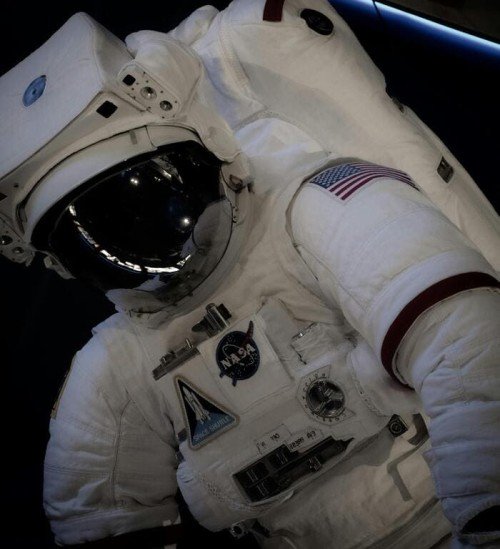Advancing Space Health with Medicine Translation Services

The exploration of space has always represented the pinnacle of human curiosity and ingenuity. From the early days of satellite launches to the International Space Station, and now the ambitions of private companies aiming for Mars, the challenges of space are complex and multifaceted. Among these challenges, one critical yet often overlooked aspect is the management of healthcare information across languages, cultures, and medical systems. Here is where medicine translation services play a pivotal role in advancing space health.
The Unique Challenges of Space Medicine
Space medicine is unlike any other branch of healthcare. Astronauts experience microgravity, cosmic radiation, and isolated environments that profoundly affect their physiology. Bone density loss, muscle atrophy, and cardiovascular changes are just a few of the medical concerns that require precise monitoring and intervention. Moreover, psychological stress, sleep disruption, and limited medical resources add layers of complexity that terrestrial medicine rarely encounters.
Medical documentation and communication in this context are critical. Astronauts come from diverse countries with different medical terminologies, standards, and protocols. A small miscommunication can have serious consequences in the confined environment of a spacecraft or space station. Therefore, ensuring that medical instructions, emergency procedures, and research findings are accurately translated is not just a matter of convenience—it is a matter of safety and survival.
How Medicine Translation Services Support Space Health
Medicine translation services bridge the gap between diverse medical languages and the universal language of science. They ensure that research findings, clinical instructions, and patient health records are communicated clearly across languages and disciplines. In the realm of space health, these services are indispensable for several reasons:
1. Clear Communication in Multinational Crews
International collaboration is at the heart of modern space missions. Astronauts from the United States, Russia, Europe, Japan, and other countries often work together on the same spacecraft or station. Each astronaut brings unique medical histories and health needs, which must be accurately documented and understood by the medical team. Medicine translation services ensure that critical information is transmitted without error, reducing the risk of medical mishaps.
2. Accurate Research Dissemination
Space medicine research generates a vast amount of data, from bone density studies to cardiovascular health assessments. These findings are often published in different languages or tailored to specific regional medical standards. Translation services for healthcare allow scientists and medical professionals to access, interpret, and apply this research globally. By removing language barriers, translation services accelerate the development of effective countermeasures against the health challenges posed by space travel.
3. Standardizing Emergency Protocols
In the event of a medical emergency in space, time is of the essence. Protocols must be precise, universally understood, and immediately actionable. Medicine translation services help create multilingual manuals, guides, and digital tools that ensure every crew member comprehends the procedures. This standardization is crucial for rapid response in scenarios where even a slight delay could endanger lives.
4. Supporting Telemedicine in Space
Telemedicine has become a vital component of space healthcare. Astronauts rely on remote consultations with doctors on Earth for complex medical issues. In these interactions, precise translation of symptoms, diagnostic results, and medical advice is essential. Medicine translation services enable clear and accurate communication, ensuring that medical guidance is correctly understood and applied, despite the distance and potential language differences.
The Broader Impact of Translation Services for Healthcare
While the focus here is on space medicine, the importance of translation services for healthcare extends far beyond the confines of a spacecraft. The lessons learned from applying these services in space have practical applications on Earth. Multilingual healthcare communication improves patient safety, supports global research collaboration, and ensures equitable access to medical knowledge.
For instance, hospitals and research institutions worldwide benefit from the accuracy, consistency, and reliability provided by professional translation services. Medical trials, clinical reports, and patient care instructions are increasingly shared across borders, making precise translation essential for both ethical and practical reasons. The same attention to detail required for space health can enhance patient outcomes in diverse terrestrial settings, especially in multicultural regions or during international health crises.
The Future of Space Health and Translation
As humanity prepares for longer missions, including trips to Mars and beyond, the demand for accurate, reliable medicine translation services will grow. These missions involve more complex medical challenges and longer periods of isolation, increasing the need for comprehensive health documentation and multilingual communication.
Emerging technologies, such as AI-assisted translation and real-time multilingual communication tools, will further enhance the role of translation services in space medicine. However, the human element—medical translators with expertise in both language and medical terminology—will remain crucial. Their ability to interpret nuanced information and ensure precision can make the difference between mission success and failure.
Medicine translation services are an unsung hero in the advancement of space health. By enabling clear communication among multinational crews, standardizing emergency protocols, supporting telemedicine, and facilitating research dissemination, these services play a vital role in the safety and effectiveness of space missions. Moreover, the benefits extend beyond space, enhancing healthcare communication and patient safety on Earth. As we push the boundaries of human exploration, investing in accurate and professional translation services for healthcare is not just a logistical necessity—it is a cornerstone of advancing global medical knowledge and protecting human life in the most extreme environments. Space presents immense opportunities and formidable challenges, but with medicine translation services at the forefront, we can ensure that humanity reaches for the stars safely and successfully.